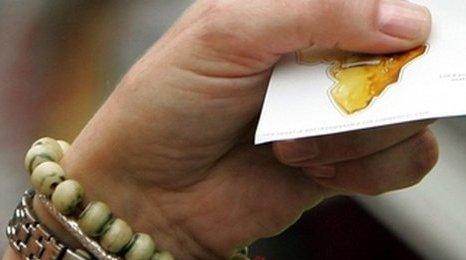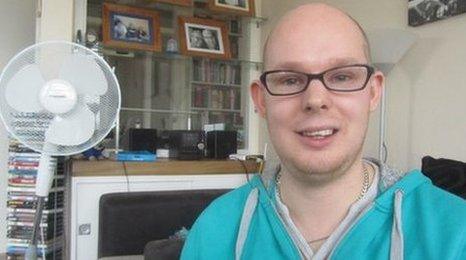Ticket scams 'cost victims £3.7m' last year
- Published

Police said festival and concert-goers were among the most at risk of fraud
Concert goers and holidaymakers were the biggest victims of ticket scammers last year, police have said.
The Association of Chief Police Officers (Acpo) said unsuspecting consumers handed over a total of £3.7m to fraudsters in 2013.
Among the 4,555 reports were 22 victims who lost £10,000 or more.
Almost half the cases involved flight or concert and festival tickets, although people buying tickets for sporting events were also targeted.
Fraud reports peaked in the summer music festival season, Acpo said, and spiked for flight tickets again in December.
The association said scams were typically carried out over the internet.
Acpo's national co-ordinator for economic crime, Commander Stephen Head, said the problem was getting worse.
"Millions of pounds were lost last year and millions more could go the same way in 2014," he warned.
"Taking a punt on an unofficial seller, be it over the internet or face-to-face, is just not worth the risk."
'Growing threat'
Cdr Head, of the City of London Police, said the responsibility for tackling the con artists lay with ticket distributors, as well as the police:
"I am calling on the industry to take a long hard look at the way tickets are sometimes sold in this country to ensure their processes are as resilient as they possibly can be to the growing threat of fraud."
Acpo pointed to research by the National Fraud Intelligence Bureau which suggested fraudsters prepare for summer music festivals through the autumn and winter months.
It said a common method used by scammers was to claim the cost of flights had risen and demand more money.
If the buyer tried to cancel, a "cancellation" fee would be added, even though in many cases no flights had ever been booked by the fraudsters, Acpo said.
In the festival season fraudsters would typically produce a certificate of authentication to persuade music fans to hand over their money.
Thursday sees the start of a week-long police campaign to target the criminals in "hotspots" around the country.
- Published25 April 2014

- Published11 December 2012

- Published11 October 2012
